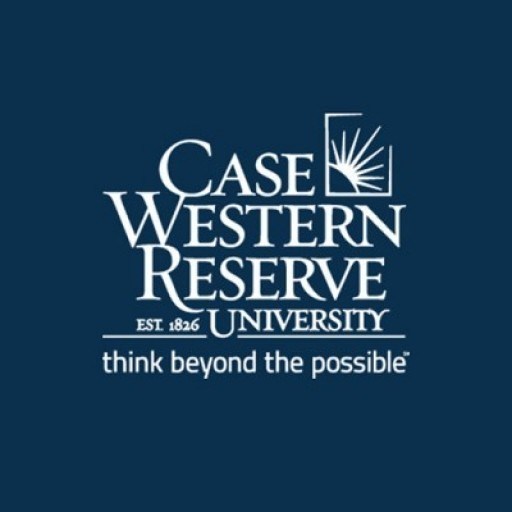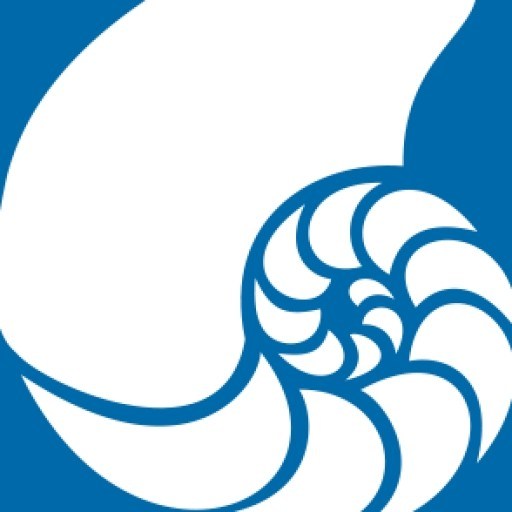Photos of university / #cwru
The Bachelor of Science in Computer and Information Science at Case Western Reserve University offers students a comprehensive and rigorous curriculum designed to prepare them for the rapidly evolving fields of computing and information technology. This program provides a strong foundation in both theoretical and practical aspects of computer science, including programming, algorithms, systems, and software development, alongside the study of information management and innovative computing applications. Students gain hands-on experience through laboratory work, projects, and internships, enabling them to develop critical problem-solving skills and technical expertise.
The curriculum is structured to support a broad understanding of core topics such as data structures, computer architecture, operating systems, databases, and networking, while also offering specialized elective courses in areas like cybersecurity, artificial intelligence, machine learning, data science, and human-computer interaction. Emphasis is placed on fostering creativity, analytical thinking, and teamwork, which are vital skills in today's technology-driven world. The program encourages interdisciplinary learning and collaboration across various fields, preparing graduates to excel in diverse careers or pursue advanced education in computer science or related disciplines.
Students benefit from state-of-the-art laboratories, research centers, and close ties with industry partners, facilitating internships, co-op opportunities, and research projects that provide real-world experience and networking opportunities. Faculty members are active researchers and industry professionals committed to mentoring students and advancing knowledge in their areas of expertise. The program also emphasizes professional development, ethics, and the societal impacts of computing, ensuring graduates are responsible and innovative contributors to the field.
Graduates of the Computer and Information Science program at Case Western Reserve University are well-equipped to enter a variety of roles in software development, systems analysis, cybersecurity, data analysis, and IT consulting. They are also prepared for graduate studies or entrepreneurial ventures in the technology sector. With a curriculum rooted in both foundational principles and cutting-edge applications, this program fosters the skills, knowledge, and experience necessary for success in the dynamic landscape of computer science and information technology.
The M. S. program in Computer Science requires students to have substantial knowledge of undergraduate computer science material. This includes knowledge in data structures, algorithms and operating systems equivalent to that in the courses:
- EECS 233 Introduction to Data Structures
- EECS 340 Algorithms and Data Structures
- EECS 338 Introduction to Operating Systems
This requirement is normally satisfied by taking courses at the student's undergraduate university which contain most of the material in the above courses. Students deficient in one or more of these areas may be required to satisfy this requirement by taking the corresponding course listed above. A student taking and passing a more advanced course in an area automatically demonstrates knowledge of the material in the area; e.g. taking EECS 454 Analysis of Algorithms demonstrates knowledge of the material in EECS 340.
Students are required to have specialized knowledge in at least one of the following tracks, by taking at least three graduate level classes from that track. The list of acceptable classes is shown below. Generally, the chosen track should correspond to the student’s thesis research area or project. EECS 600 (Special Topics) classes relevant to the student’s research area or project will also qualify in this category with approval from the student’s advisor.
The remaining classes can be (i) any other class from the classes listed below, or (ii) any CS-related class offered by EECS, or (iii) graduate level classes in other departments necessary for the student’s research or project. At most two classes can be from the third category.
List of tracks and corresponding courses
- Software Engineering:
- EECS 441 Internet Applications
- EECS 442 Causal Learning from Data
- EECS 444 Computer Security
- EECS 466 Computer Graphics
- EECS 493 Software Engineering
- Algorithms & Theory:
- EECS 440 Machine Learning
- EECS 454 Analysis of Algorithms
- EECS 477 Advanced Algorithms
- MATH 408 Intro to Cryptology
- Computer Systems, Networks and Security:
- EECS 425 Computer Networks
- EECS 441 Internet Applications
- EECS 444 Computer Security
- MATH 408 Intro to Cryptology
- Databases and Data Mining:
- EECS 405 Data Structures and File Management
- EECS 433 Database Systems
- EECS 435 Data Mining
- EECS 439 Web Data Mining
- EECS 440 Machine Learning
- Bioinformatics:
- EECS 435 Data Mining
- EECS 440 Machine Learning
- EECS 454 Analysis of Algorithms
- EECS 458 Bioinformatics
- EECS 459 Bioinformatics for Systems Biology
- Artificial Intelligence:
- EECS 440 Machine Learning
- EECS 442 Causal Learning from Data
- EECS 484 Computational Intelligence
- EECS 491 AI: Probabilistic Graphical Models
- EECS 496 AI: Sequential Decision Making
- EECS 497 Statistical Natural Language Processing
- EECS 499 Algorithmic Robotics
- EECS 531 Computer Vision
Requirements
- Applicants must have a good academic record, e.g., a B-average or rank in the upper third of his or her graduating class at an institution whose status and programs are readily assessed.
- Applicants must meet all of the undergraduate prerequisites for the proposed field of graduate study.
- Statement of Objectives — Some programs have this built into the application. If not, create your own using "Statement of Objectives" as the heading. The statement should be one to two pages and include your purpose in undertaking graduate work as well as an explanation of your study and research interests as they relate to your undergraduate/graduate study and professional goals.
- Academic Transcripts – You are required to identify all post-secondary educational institutions you have attended on your application form, and to submit an official transcript from each. Admission to the School of Graduate Studies is conditional on final certification of degrees awarded. Note to International Students: Documents in languages other than English must be accompanied by certified translations in English.
- Letters of Recommendation - Three letters of recommendation must be submitted from those individuals sufficiently familiar with you, and who can assess your academic preparation, abilities and accomplishments. Letters should be from your most recent instructors in your proposed field of study. If you have been out of school for several years, one letter may be from your employer, supervisor or other person familiar with your most recent activities.
- Test Scores – Your department will identify required standardized tests. When you fill out forms for these use 1105 as the institutional code for Case Western Reserve University. The School of Graduate Studies will forward all official score reports of standardized tests (GRE, TOEFL, etc.) to the program of interest. The department will inform you which standardized tests are required for your program. International students whose first language is not English must demonstrate English proficiency by taking the Test of English as a Foreign Language (TOEFL) and earn a minimum score of 577 if paper-based, or 90 if Internet-based. The International English Language Testing System (IELTS) is also accepted. The minimum acceptable score is 7.0. Some departments may require higher scores. International applicants cannot be admitted without receipt of an acceptable official TOEFL score. The TOEFL is valid for two years after the test date. The GRE is valid for five years after the test date.
- Application Fee - A nonrefundable application fee of $50 is required for each application submitted.
The Computer and Information Science program at Case Western Reserve University offers a variety of options for financing your education. Students can take advantage of numerous scholarships, grants, and assistantships designed to reduce the financial burden of graduate study. Merit-based scholarships are available for outstanding applicants, and financial aid packages are often tailored to individual circumstances. Many students secure funding through departmental and university scholarships, which recognize academic excellence and research potential. Additionally, federal and state financial aid programs can provide need-based assistance, including loans and work-study opportunities.
Graduate students in the program may also qualify for research assistantships or teaching assistantships, which offer stipends and tuition waivers in exchange for research or instructional duties. These assistantships not only provide financial support but also valuable professional experience, fostering career development in academia and industry. CasWestern Reserve University encourages prospective students to complete the Free Application for Federal Student Aid (FAFSA) to determine eligibility for federal aid programs, which can include direct loans and Perkins loans.
Moreover, external scholarship opportunities can be explored through professional associations, industry-sponsored scholarships, and fellowship programs. Students are encouraged to research external funding sources and apply early to maximize their chances of receiving financial support. The university’s financial aid office provides comprehensive counseling and resources to assist students in identifying suitable funding opportunities and navigating the application process.
Overall, financing a Computer and Information Science degree at Case Western Reserve University involves a combination of institutional aid, external funding, and personal resources, aiming to make graduate education accessible and affordable for all qualified students.
The Bachelor of Science in Computer and Information Science at Case Western Reserve University offers students a comprehensive education in the fundamental principles and modern applications of computing. The program is designed to prepare graduates for careers in industry, government, or advanced study, emphasizing both theoretical foundations and practical skills. Students have the opportunity to explore core areas such as algorithms, programming languages, software engineering, computer architecture, databases, and cybersecurity. The curriculum also includes coursework in mathematics, discrete structures, and data structures, providing a solid analytical foundation.
In addition to technical knowledge, students develop problem-solving abilities, critical thinking, and teamwork skills through lab work, projects, and collaborative assignments. The program encourages innovation and entrepreneurship, with options to engage in research projects or internships to gain real-world experience. The faculty are distinguished researchers and industry professionals committed to student mentorship. The university also provides access to cutting-edge laboratories and computing resources to support hands-on learning.
Graduates of the program are well-positioned for careers in software development, data analysis, systems administration, or pursuing graduate studies. The university’s strong industry connections facilitate internships and employment opportunities, and the program is tailored to meet the evolving needs of the technology sector. With a flexible curriculum, students can customize their education with elective courses in areas such as artificial intelligence, machine learning, human-computer interaction, or network security. Overall, the program aims to produce versatile computer scientists equipped with the knowledge, skills, and ethical understanding necessary to excel in the rapidly changing digital landscape.






